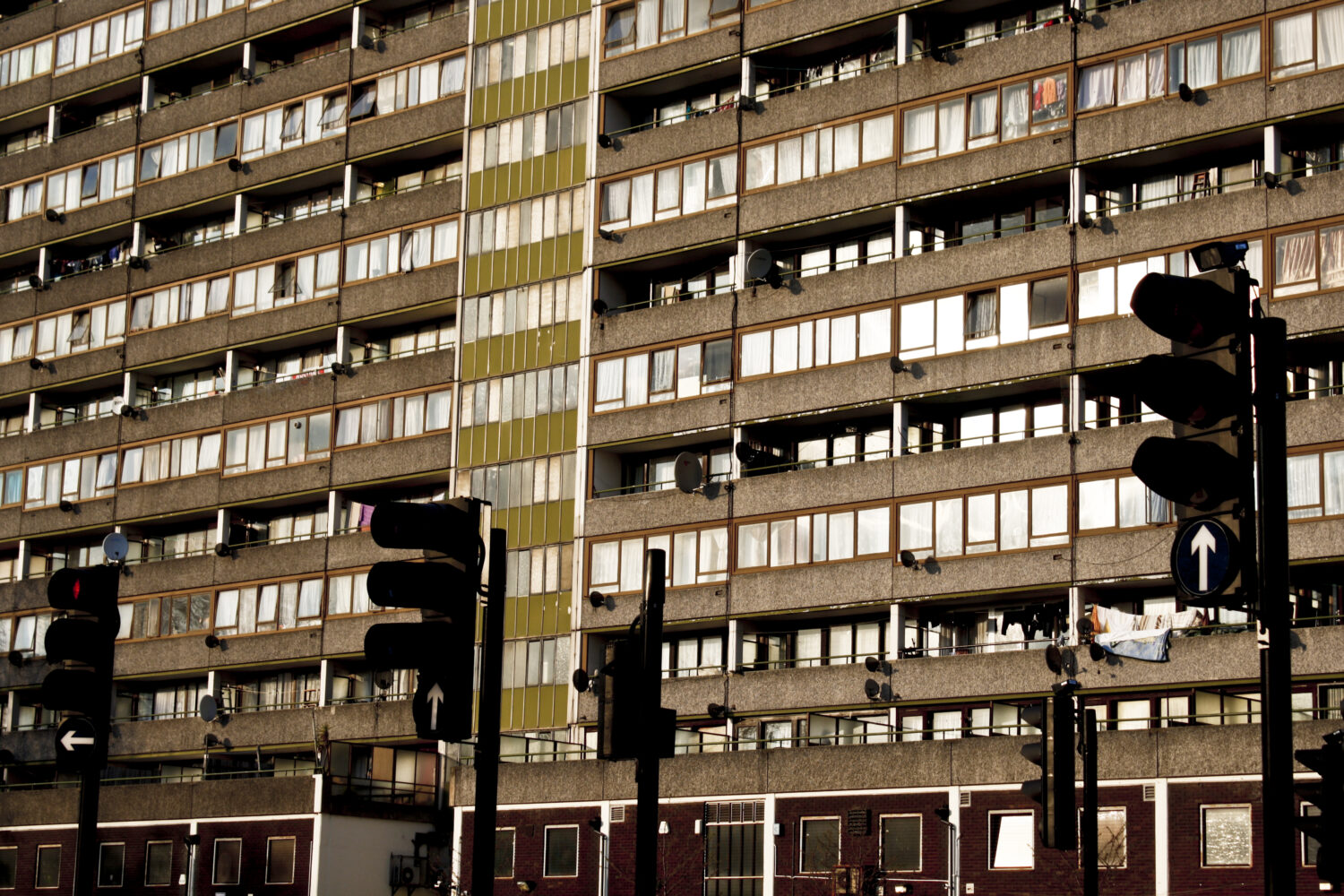Neighbourhoods Revisited
Twenty-five years ago, Labour set out to fix the social and the economic together. We need a similar strategy now, writes Hilary Armstrong
In the wake of the 1997 general election, Tony Blair stepped onto the Aylesbury estate in London and declared that the social problems New Labour aimed to address were all to be seen there. This began the National Strategy for Neighbourhood Renewal—an ambitious endeavour that aimed to place neighbourhoods at the centre of a comprehensive national economic and social revitalisation programme.
We had talked about poverty even before taking office, recognising that it was concentrated in specific places. Our plan was to use all the levers of government to combat the challenges faced by the most vulnerable in society. We used the concept of ‘social exclusion’, and when in government established the Social Exclusion Unit, and then the NSNR, with its objective that “within 10 to 20 years no-one should be seriously disadvantaged by where they live”. We meant this quite seriously.
We recognised that social issues were inseparable from economic issues. Issues like health, happiness, the environment, community pride, and social capital were integral to economic prosperity. Tackling social exclusion needed a holistic and coordinated approach.
When I became minister for housing and planning and local government in 1997, the spatial policy we had inherited was making progress but needed work. The regional economic aid associated with the Single Regeneration Budget (1995-2002) and the ambitious City Challenge projects recognised that a post-industrial spatial policy had to be tailored and partnership-led. Structures and tools for planning and delivery, like the government offices for the regions and our innovation, the regional development agencies, were important in coordinating spatial policy nationally in a way we haven’t seen before or since.
New Labour took the next logical step: a set of policies that focused on dealing directly with problems where they were concentrated – in communities. Our strategy included strands such as neighbourhood management, but the centrepiece was the New Deal for Communities (NDC) from 1998 to 2009.
The NDC provided 39 communities of an average of around 10,000 residents with around £50m each over 10 years. We used the index of multiple deprivation to choose fairly and accurately where best to intervene. A partnership model was used for decision-making, including local residents and local councillors, primary care trusts and the police. Normally residents were in the majority on the decision-making boards. Change was measured over a wide range of indicators, related to crime, housing, physical environment, health, education and worklessness.
The NDC was a success and, crucially, good value for money. It was the best evaluated of any regional policy initiative in UK history, but it was unfortunate that the evaluation was published immediately before a new administration which was looking for cuts in government expenditure took office. The NSNR as a whole succeeded in narrowing the gap between the poorest neighbourhoods and the rest, and without it, those areas would have been worse off.
There are three key lessons to be drawn from the National Strategy for Neighbourhood Renewal. First of these is the way the programme focused on building the foundations upon which other improvements like employment and economic activity can be built.
The NDC was a success and, crucially, good value for money. It was the best evaluated of any regional policy initiative in UK history
Second is the recognition that problems like social exclusion, low levels of social capital, poor community cohesion, poor community infrastructure, and higher levels of crime and disorder, have to be tackled for growth and regeneration to take place. Finally, it is important to recognise that the length of the programme, which set it apart from past programmes, and the agreement from Gordon Brown and the Treasury to honour this were key.
The NDC showed that communities can be an effective lead partner in regeneration but they need to have the capacity to do it. In today’s ‘levelling up’ agenda, a proper communities policy is missing. Devolution is great but mayoralties are not enough – communities must be empowered or devolution won’t affect them.
Community capacity comes through social capital – networks of relationships that allow economic and social activity to take place. It is one of the key discoveries of contemporary economics. We now know that it has driven sustainable growth throughout history and it is what separates deprived neighbourhoods which are poor from those which are ‘left-behind’ – poor and without the opportunities to regenerate.
Unfortunately, despite the NSNR we still have many of the same problems, often concentrated in the same places – and many of them have got even worse. Even New Labour underestimated the scale of the challenge, and since then it has been practically ignored. One thing we underestimated which only became clear as the programme went on was that there were some people who were so distant from the mainstream that they had no contact with the state and they could not benefit from state help. That is one of the reasons why community-led regeneration – which reaches the people the state can not reach – has the most transformative power.
A tight fiscal environment means that any money spent by the next government will have to be targeted at the best value for money schemes. Investment in communities offers this. Regenerated communities will be more resilient, will add to our workforce capacity and will build social cohesion nationally. If we are to avoid catastrophe in the face of challenges like the cost of living crisis, war, pandemic and ecological change, the neighbourhoods which absorb so much local authority and state spending must be improved enough to withstand change. The preventative state concept is valuable, but it will not work without empowered communities at its heart.
A key element to success will be bending mainstream spend. The NSNR worked best when it had cross-government delivery. It will be the hardest thing to do but will be the most important. We now know so much more about the importance of health, the built environment, education and culture on economic growth. It is the kind of joined-up government which New Labour pioneered and which we need again.
Many of the problems the National Strategy for Neighbourhood Renewal was supposed to address – and which it made progress in addressing – are still with us and getting worse.
Poverty in Britain and the economic disadvantages which hold people back from breaking out of that poverty are not the inheritance of everyone. Your life chances depend on the neighbourhood where you live, and not just the region, which the levelling up debate is often framed as revolving around. Twenty-five years ago we designed a strategy to address this, and we made progress, but we lost office before the work was complete – now we need to start again.
A new review of the National Strategy for Neighbourhood Renewal commissioned by Local Trust was published on 13 November 2023
Image credit: Nico Hogg via Flickr

